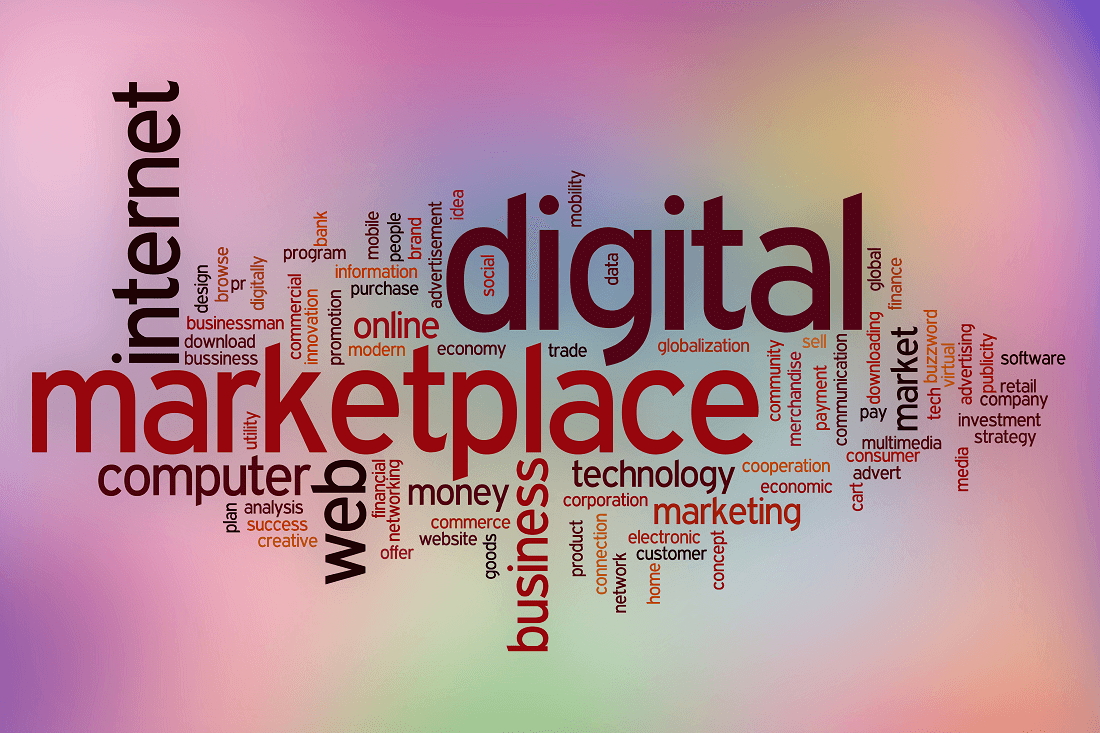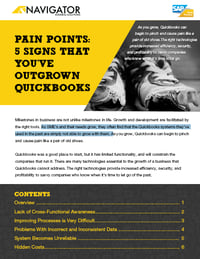
Distributors Need More Than QuickBooks
Distributors that hope to remain competitive in the drastically changing supply chain landscape are currently transforming and digitizing their business models. One of the biggest ways distributors are changing is through direct selling through online marketplaces such as Amazon and eBay.
But there’s a problem. Selling through digital marketplaces creates challenges for smaller distributors. While a traditional retail strategy involves a few large transactions, distributors moving to digital platforms find themselves tasked with an omnichannel fulfillment strategy made up of many small transactions.
QuickBooks, used by many small distributors and billed as a full-scale accounting solution that is capable of managing purchasing, distribution, inventory, sales order fulfillment, and accounting, simply cannot handle the number of transactions and amount of data required for distributors to keep up with the demands of the online marketplace.
Why QuickBooks Falls Short
According to Ralph Hess, vice president of sales for Navigator Business Solutions, QuickBooks simply can't handle the financial and logistical complexities of online marketplaces.
“At some point, QuickBooks tips over,” says Hess. “It just can't handle the volume of transactions. It can't really handle good accrual accounting, so as a distributor grows and matures, they need a more robust and mature enterprise resource planning (ERP) backend that allows them to replace the spreadsheets and manual processes they’ve been doing for forecasting and ordering from their suppliers. That can help them more efficiently manage their inventory availability.”
Hess, who routinely works with small distributors who are wading into the competitive world of digital marketplaces, said replacing QuickBooks is about much more than accounting. Smaller distributors who are new to working within digital marketplaces often find they have trouble keeping track of serialized and lot-controlled inventory when using QuickBooks.
The software also falls short when it comes to evaluating margins and determining the proper landed costs for products being sold. As distributors increase their margins by handling massive numbers of ecommerce transactions, they also find they need data, analytics and automation to make smarter and more informed decisions about purchasing and other metrics.
“They don’t have the right information to make rapid business decisions,” says Hess. He added that most small distributors transitioning to ERP are used to doing a lot of manual entry and analysis using both QuickBooks and Excel.
That’s a slow, labor-intensive process prone to human error and simply not practical for a distributor trying to remain lean and competitive in the aggressive digital marketplace.
Moving Beyond QuickBooks
QuickBooks is a valuable tool for small distributors who are just starting out. It enables general accounting and bookkeeping, and has add-ons for forecasting, inventory management, customer reporting and sales functionality.
However, any distributor looking to grow their business and expand into online marketplaces will require more features, intelligence and automation. An ERP solution geared toward small businesses provides that robust accounting functionality plus a lot more.
ERP offerings are inherently designed to integrate and manage a host of back-end functions. These include operations, procurement, logistics, human resources, supply chain management and sales and marketing. All data is centralized, and it can be shared among departments. This means ecommerce transaction data and trends can be mined and analyzed to make better business decisions more quickly.
Distributors working with online marketplaces also must be able to integrate with those marketplaces’ specific APIs and web services. Amazon, for instance, has its own set of web services that require tight integration for managing transaction details and ensuring distributors receive their commissions and pay. Marketplaces such as eBay and others have their own sets of web services and require different types of integration, too.
An ERP solution will seamlessly handle these integrations while also offering support for multiple currencies, specialized inventory valuation methods, and customized reports. ERP offerings are built to be flexible and easily customized, making it simple for distributors to work with new vendors and manage new types of transactions.
ERP Aids Digital Transformation
Digital transformation is changing the entire distribution landscape. To remain competitive, companies must be able to expand beyond their traditional business models, and that means moving into digital marketplace selling.
Being successful in multiple online marketplaces requires real-time data and metrics about inventory, fulfillment and shipping. Businesses must also be proactive and detail-oriented to ensure that both customers and the online marketplaces they are working with are satisfied with each transaction.
Deploying an ERP solution provides distributors with the data, tools and analytics they will need to be successful. ERP offers automation, intelligence and actionable insights powered by real-time analytics. Distributors will realize increased productivity and efficiencies while organically growing their businesses.
Most importantly, ERP gives distributors the tools they need to seamlessly expand into new online marketplaces without disrupting their traditional business models. QuickBooks is an important piece of accounting and bookkeeping software, but it simply can’t offer the array of powerful integrated tools that an ERP solution provides.


